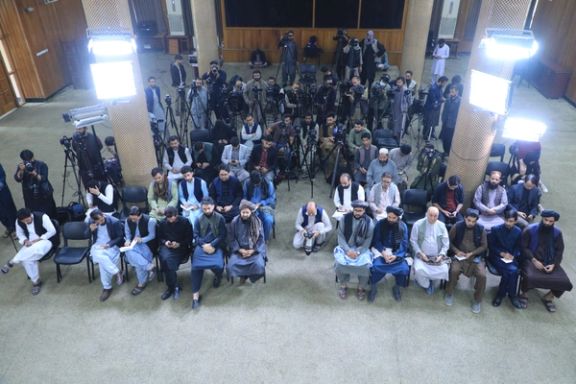In a report released Thursday, the rights organisation said that since the Taliban’s return to power four years ago, Afghan journalists have faced severe repression and intimidation, with authorities monitoring all media content. Even minor criticism of Taliban officials can lead to arrest or physical abuse, the report said.
Fereshta Abbasi, Human Rights Watch’s Afghanistan researcher, said: “Taliban officials increasingly compel Afghan journalists to produce ‘safe,’ pre-approved stories, and they punish those who step out of line with arbitrary detention and torture. While all Afghan journalists have been affected and many have fled the country, women journalists have been among the hardest hit.”
Torture and Prosecution
According to the report, most arrests carried out by Taliban intelligence are based on accusations of espionage, contact with opposition groups or exiled media, or coverage of ISIS-K or internal Taliban disputes.
The Taliban’s intelligence service and morality police frequently raid media offices and journalists’ homes, confiscate phones and computers, and search contact lists. Some reporters have been detained merely for speaking to foreign media outlets.
Several journalists told HRW that Taliban agents used violence during interrogations. Some said they were beaten so severely that their teeth or facial bones were broken. Others were released only after signing pledges not to work as journalists again. One former detainee said: “Those who were released are still struggling with trauma.”
Forced Self-Censorship
Human Rights Watch said that fear of arrest has led many journalists inside Afghanistan to restrict their reporting to official events such as government projects or diplomatic meetings.
A Kabul-based journalist told the group he had been detained twice for disregarding Taliban orders. The report also said the Ministry for the Promotion of Virtue and Prevention of Vice regularly inspects media offices and has banned filming or photographing people, claiming that depictions of living beings are forbidden under Islam.
A journalist in Herat said that after a cultural event, “we were only allowed to publish a photo of the empty hall. No faces could be shown.”
The Taliban have also ordered media outlets to refer to them as the “Islamic Emirate” rather than “the Taliban,” and to publish most reports in Pashto.
Uneven Restrictions
The report noted that censorship levels vary across provinces. Monitoring is strictest in Kandahar, while central and northern regions face differing degrees of pressure.
A reporter told HRW: “You can go to Panjshir, but they’ll follow you. You need to coordinate with local authorities beforehand. If you don’t get permission, you can’t report.”
Coverage of Afghanistan’s borders with Iran or Pakistan also requires direct permission and supervision from Taliban officials, the report said.
Ethnic minority journalists, particularly Hazaras, face harsher treatment. One Hazara journalist recounted being insulted and threatened while in Taliban custody: “A Hazara kid dared to speak against us? We won the war with the Americans, who do you think you are? We can kill you whenever we want.”
HRW said Taliban intelligence agents are especially active in Hazara-majority regions and that Shia religious programming has been banned. One journalist preparing a report on a Shia cleric said Taliban officials threatened he would “die under torture” if the story was published.
Journalists in Exile
The rights group warned that dozens of Afghan journalists living in Pakistan and Türkiye face the risk of deportation. Many have no legal status and fear arrest or forced return to Afghanistan. In Türkiye, most exiled journalists lack work or residence permits and live in precarious conditions.
HRW said returning Afghan journalists would violate the principle of non-refoulement, as they face detention, torture, or death if sent back.
Warning to the International Community
Human Rights Watch warned that without urgent international action, Afghanistan risks becoming what it called a “silent nation.”
The group urged regional and global powers to honor their pledges to protect Afghan journalists, halt all deportations, and press the Taliban to end censorship, arbitrary arrests, and violence against the media.
The report was based on 18 remote interviews with journalists inside Afghanistan and 13 in-person interviews with Afghan journalists and refugee organisations in Türkiye.






